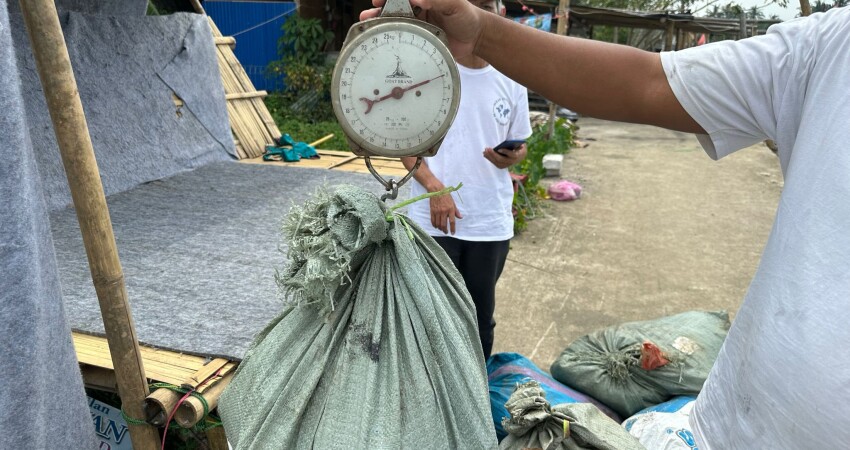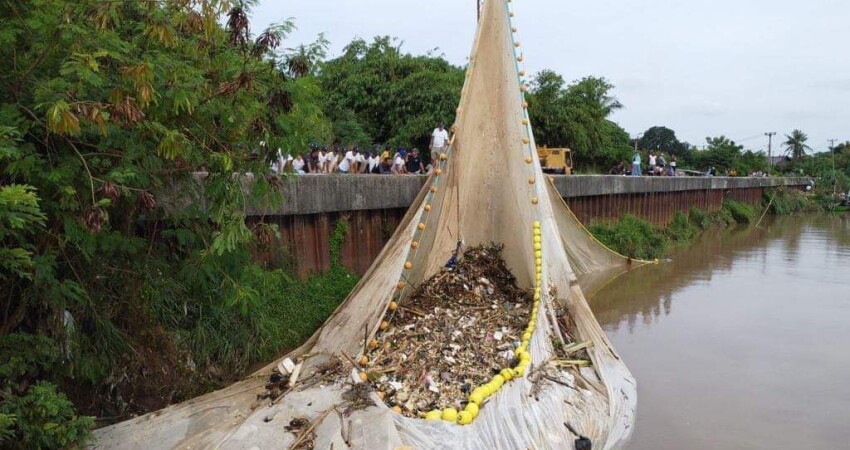Kieran Kelly, founder of the environmental organization Ocean Integrity, is passionate about cleaning up the oceans, and wants to set the record straight on where plastic in the ocean originates. “They say 60 percent of the plastics in the ocean come from fisheries. That’s not true. It’s not even close.”
Kelly believes Ocean Integrity’s system to remove microplastics from the oceans will not only benefit the marine environment, but put money in fishermen’s pockets as well. He will be presenting the story of Ocean Integrity this week at the Pacific Marine Expo, Nov. 20-22 in Seattle.
Ocean Integrity estimates that 95 percent of microplastics in the oceans comes from the world’s rivers. “In India, Indonesia, and the Philippines, there are rivers where you could literally walk across the plastic. But most of it you can’t see because it’s small particles coming from our washing machines. We estimate another 4.5 percent is dumped directly into the ocean, and 0.5 percent comes from commercial shipping and fishing, including recreational.”
One of the first issues Kelly faced was how to get plastic out of the ocean. He points out that it involves a lot more than skimming floating plastic from the surface. “We started working with a net company in Denmark to see how we could filter microplastics out of the rivers. We needed a force to open the meshes.”
Kelly recalls looking at the prop wash astern of a boat he was on and getting the idea that cavitation could create that force. “That’s what we patented. We tried it out in a test tank and people were amazed. We call it the Micro-plastics Elimination Device, the MPed.” According to Kelly, Ocean Integrity’s MPEDs have filtered 1.6 million tons of microplastics to date.
Success in filtering microplastic led to the next problem for Ocean Integrity. “Plastic is a great invention,” says Kelly. “And 100 percent of it can be recycled. The problem is that we don’t have the systems in place to handle it.” According to Kelly, all plastic collected by Ocean Integrity will be recycled. “Most of it goes into asphalt,” he says. “Some goes into construction aggregates and some even gets turned into fuel.”
In addition to the MPEDs, Ocean Integrity has developed an app that will enable fishermen to document how much plastic they take to sea and how much they bring back. “And it’s all audited, tracked and traced via blockchain,” says Kelly. “We have the data that show the fishing industry is not the problem. Fishermen bring back more plastic than they take to sea, and they get paid for it.”
Kelly says he was motivated to found Ocean Integrity by the memory of his late son.
“When my son was young and saw all the plastic in the sea, he asked me why it had to be that way, why couldn’t we clean it up? He died suddenly, and I found no peace until I started doing this work. I’m doing it for him.”








